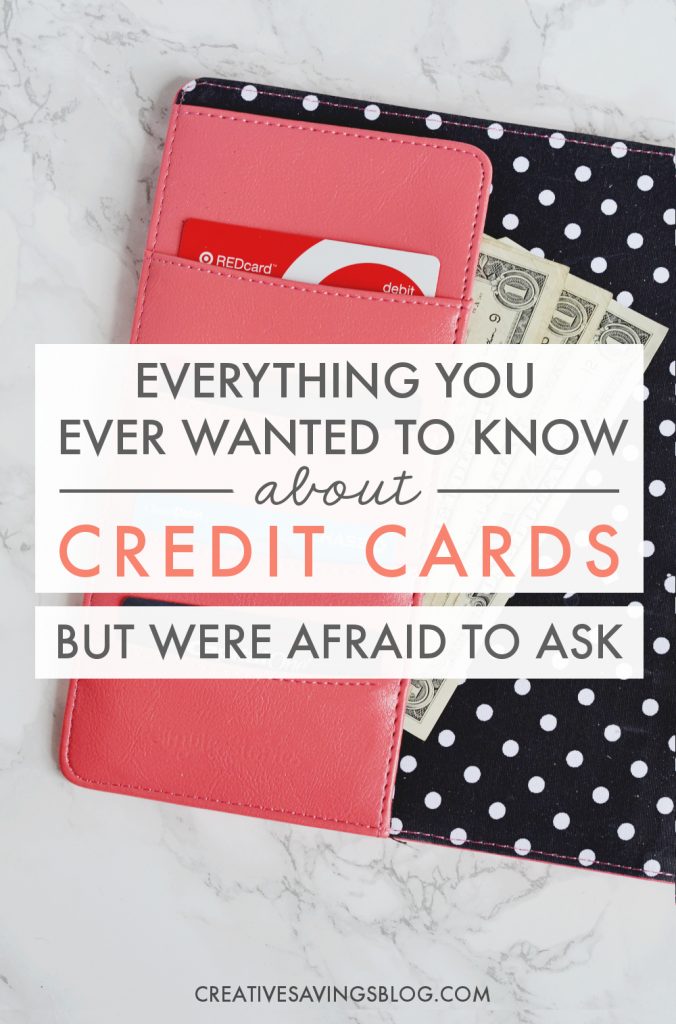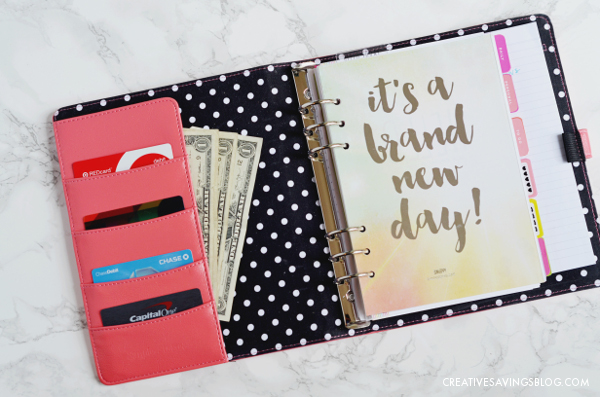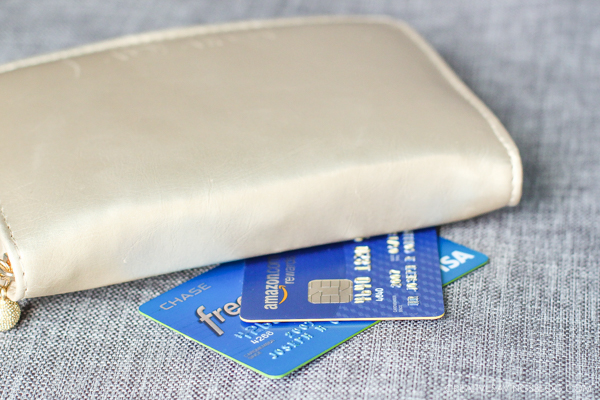Everything You Ever Wanted to Know About Credit Cards
This post may contain affiliate links. Read my full disclosure policy here.

So I asked a Louis DeNicola, a credit card expert who writes for Credit Karma and many other personal finance websites if he would do a Q&A to share all his credit-related wisdom. I have to say he over-delivered…this guy really knows his stuff! I’m super excited to finally have answers to all the things I’ve been wondering about myself.
I’ll definitely be referring back to this post again and again, and I know you will too. Repin it HERE so you don’t lose it! You can also find a table of contents below, which makes it easier to jump around to each question.
- Do you need to have a credit score to get a mortgage?
- How many credit cards is too many?
- How do you cancel your credit card without it hurting your credit score?
- Are there any risks to leaving a card “open”?
- How do I combine credit card balances so I only have to pay one bill?
- Is it better to stick with the main credit card companies or can I use a combination of store credit cards too?
- What is the best rewards card out there right now?
- What is travel hacking? Is it legal?
Alrighty….take it away Louis!
– – – – –

Kalyn invited me to answer a few credit-related questions from the Creative Savings community. I tried to provide detailed yet easily understandable answers, but if you have any additional questions or need clarification on a point please let me know.
QUESTION #1: Is My Credit Really That Important? For Instance, Do I Need to Have a Credit Score to Get a Mortgage?
I’d say your credit scores (you actually have many different credit scores) can be very important. You might be able to get a loan, even a mortgage in some cases, without a credit score. But, having an excellent credit score can help you get a lower interest rate, which can save you tens or even hundreds of thousands.
I think credit is interesting because most of the time you don’t need to think about your credit scores, but then all of the sudden it can be really important.
Taking the time to understand how your scores are calculated and instilling good habits early on can help. In general, as long as you have a revolving credit account (a credit card, not a debit card with a card issuer’s symbol) just remember to pay the bill on time and only use a small portion of your available credit. You shouldn’t carry a balance if you don’t need to, it doesn’t help your score.
QUESTION #2: How Many Credit Cards Is Too Many?
As long as you’re comfortable managing all your credit cards and can pay the balances off in full each month, I don’t feel like there’s necessarily a limit. That being said, there was a recent story about a guy who has 1,497 credit cards which I think is a bit extreme. I have about 16 right now, although I regularly use only two to three for personal spending and one for business expenses.
There are some potential downsides to opening a lot of cards. Each time you open a card, your credit scores might drop by a few points because the issuer will do a “hard inquiry,” and check your credit report. If you open a lot of cards in a short period, it can exacerbate the effect.
Also, Chase recently introduced a policy that they won’t accept an application if you opened five cards, including non-Chase cards, in the last 24 months. So, if you’re eyeing a Chase card you might want to apply for it first, or hold off on other applications.
QUESTION #3: How Do You Cancel a Credit Card Without Hurting Your Credit Score?
I’ll regularly open a card for the rewards, and either cancel it later, downgrade the card to a no-fee version, or ask the issuer to waive or refund the fee (and sometimes they do). I tend to leave my accounts open, even if the card sits in my drawer unused, if there’s no fee.
Canceling a credit card can hurt your credit in several ways. The most immediate is it could affect your overall utilization rate – the percentage of available credit you use during a billing cycle. A lower utilization rate is better, often there’s a recommendation to keep it below 20 to 30 percent. Don’t have a balance higher than $200 to $300 on your credit card if the card’s credit limit is $1,000 for example.
Credit-scoring models may consider the utilization rate of each individual credit account and your overall utilization rate. Your utilization rate is an important factor, accounting for about a third of your score, and canceling a card could lower your overall utilization rate.
Another credit factor is the average age of your accounts. Canceling a card won’t remove it from your credit reports – it could remain on them for up to ten years. However, when the account drops of your reports the average overall age of your accounts may decrease.
QUESTION #4: Are There Any Risks to Leaving a Card “Open”?
If the card has a fee and you’re not using the benefits, whether that be the rewards program or free hotel nights, I don’t think it’s worth keeping the card open. But, there is some risk in leaving cards open if you don’t regularly check on their activity.
It’s possible that someone stole your card’s information months ago is just now getting around to using or selling it. If you don’t have a system in place to monitor the card’s activity, you could wind up with many fraudulent charges or even a late payment (which can hurt your credit scores).
I mitigate this risk by tracking all my spending with Quicken, and I check in at least once a month. You could also set up notifications or alerts on your cards and receive a text or email whenever someone makes a purchase with the card.
Some issuers might close your card if you never use it. You can try to avoid this by making an occasional purchase with the card, or set up a small subscription on the card (like Netflix) and automatic payments. You could then create a text or email alert that’s triggered whenever the balance exceeds $10.
QUESTION #5: How Do I Combine Credit Card Balances So I Only Have to Pay One Bill?
You’ll need to transfer the balances onto one card to combine balances. You’re basically using one credit card to pay another’s balance.
You can often request a balance transfer from your online account, or by calling the issuer of the card where you want the balance to wind up. You’ll give the other cards’ information and the amount you want to transfer. It can take several weeks for the transfer to finish and during that time you’ll still want to make payments on the original cards.
There are some limitations for balance transfers. Generally, the balance has to come from a different issuers card. For example, you can’t transfer a balance from Chase Freedom to the United Mileage card (issued by Chase). Also, the balance transfers can’t push your total balance past your credit limit or the transfer might be declined or only partially funded. Some cards have other limits as well, such as a percentage of your credit limit or a particular dollar amount.
With most cards, you’ll need to pay a fee equal to 3 to 5 percent of the balance you’re transferring, often with a $5 to $10 minimum. There are some cards, like the Chase Slate, that don’t have a balance-transfer fee if you make transfers shortly after opening the card – this could be a way to save money.
After you transfer the balances, the interest rate on the transferred balances is determined by the card they’re on. Some cards offer a promotional balance transfer interest rate, and depending on the offer you might be able to get 0-percent interest for a year or two. Sometimes the offer is only available to new cardholders, but you could also call your issuer or check your online account to see if you have any balance transfer offers on the cards you already have.
QUESTION #6: Is It Better to Just Stick With the Main Credit Card Companies or Can I Use a Combination of Store Credit Cards Too?
There are some store cards that you can only use to make purchases at the associated store, but let’s put those aside for now.
If you’re talking about the store credit cards with a network symbol (Amex, Visa, MasterCard, etc.) that you can use anywhere, you’re not going to notice much of a difference between them and a card from one of main credit card companies. (In actually, many of the store cards are backed by a big bank as well.)
Using a combination of the two isn’t necessarily better or worse than just sticking with non-store cards, and just using store cards might be a good option for some people.
However, there are a few general downsides to store cards.
- Often they have a higher interest rate than non-store standard (non-rewards) credit cards, which could be costly if you carry a balance.
- Unless you frequent the associated store, you might be able to earn more rewards with a travel or cash-back card.
- Other cards might offer more perks – like access to a free FICO credit score, an extended manufacturer’s warranties on purchases, or car rental insurance.
- Sometimes the terms aren’t as good. For example, some store cards offer 0-percent financing on large purchases, such as appliances, for 12 months. But if you don’t have off the balance in full they collect all the deferred interest that would’ve accrued over the period. You might be better off with a non-store card that offers 0-percent interest on new purchases for 12 months and only charges interest on the remaining balance after that.
That being said, store cards may be a good option for someone trying to build credit because sometimes it’s easier to get approved for one. Also, if you do frequent the associated store the rewards program might save you a lot of money.
QUESTION #7: What Is the Best Rewards Card Out There Right Now?
I don’t think there is a single best rewards card because so much depends on your spending habits and what you want to do with the rewards. I like Hilton HHonors program and I use the Citi Hilton HHonors Reserve card to automatically get status within the program. Hilton isn’t generally known as the best hotel loyalty program, but it works for where I travel (mostly domestic) and I have lots of fun getting free breakfasts and suite upgrades.
If you want a really easy-to-use card without an annual fee, the Citi Double Cash card gives you 2 percent back on all your purchases once you pay your bill. I think that’s a pretty good option for people that don’t want to worry about fees or different spending categories.
Other options if you don’t want an annual fee but don’t mind doing a little more are the Chase Freedom or Discover it cards. They each offer up to 5 points or percent back on purchases made at different retailers each quarter. But, you need to activate the offer each quarter and keep track of which retailers qualify.
A few good options if you don’t mind an annual fee are the Chase Sapphire Preferred card and American Express Starwood. The Chase card lets you earn Ultimate Rewards points, which you can redeem in several ways. One of the most valuable is to use them to book travel – Chase has its own Kayak-like booking system – and you can book travel with points and get a 20-percent discount. You can also transfer the points to partnered hotel and airline program.
The Starwood program is good because you can either use them to book Starwood hotels, or you can transfer the points to partnered hotel or airline program. When you transfer 20,000 points, you get a 5,000-point bonus.
QUESTION #8: What Is Travel Hacking? Is It Legal?
Travel hacking is simply traveling for free by using rewards programs. Perhaps it’s an airline’s or hotel’s frequent traveler program, or a credit card’s rewards program.
You often get the most bang for your buck with the initial sign-up bonus from a credit card. The offer may be for several tens of thousands of points when you spend several thousand dollars in the first few months. That’s vague I know, but the offers really do vary from card to card. The value of the points or miles can also vary from one program to another.
You can sign-up for a card, meet the minimum spend, and once you have the points never use the card again. Some people even cancel their card and then sign-up for that same card again, although depending on the issuer you might need to wait a while to be eligible for the bonus.
Travel hacking is legal, although some people push the boundaries and go into a gray area when they make purchases just to earn rewards on a credit card. There are some “hacks” out there like buying gift cards, using the gift cards to buy a money order, and then putting the money back into your account to pay the credit card bill. This is called manufactured spending.
There are a few bloggers that can help you learn more. I recommend Million Mile Secrets as it’s one of the ones that got me started. The Points Guy is still popular among beginners, although the site gets a lot of flak for heavily pushing credit cards (most of the bloggers get a commission when someone signs up for a card with their link). Doctor of Credit also has a lot of good information, particularly when it comes to initial credit card or bank bonuses and how things impact your credit scores.
You can also learn a lot on several subreddits, like r/churning for travel hacking and r/credit and for more general credit-related advice and information.
Wow! Thanks, Louis! I had no idea about things like utilization rates, how to transfer balances, and my mind was totally blown about travel hacking!
If you have any other questions for Louis, or need clarification on something he said, leave them in the comments and he’ll stop by to answer them. And if we get enough of the same question, I’ll make sure to add it to this ongoing list!
Want more tips and tricks about how to manage money better? Check out this resource page for more than 60 posts from budgeting to shopping to cutting expenses and yes, even more advice about how to use credit cards wisely!
Louis DeNicola is a freelance personal finance writer who specializes in credit, debt, and practical money-saving tips. You can find his work on Credit Karma, Clearpoint Credit Counseling Solutions, Cheapism, MSN, and Business Insider. Feel free to email Louis if you’re looking to hire a writer or have additional questions he might be able to answer – [email protected].
Do you have any other questions about credit cards?
Disclosure: Some of the links in the post above are affiliate links. This means if you click on the link and purchase the item, I will receive an affiliate commission. Regardless, I only recommend products or services I use personally and believe will add value to my readers. Read my full disclosure policy here.







I am a big skeptic when it comes to credit cards but know that it can be something helpful to boost your credit score. I really loved how much clarity you gave about using them! My husband has a credit card that we pay off monthly but I don’t touch it and have never wanted one myself. After reading this I may have to reconsider. Thanks for the info!!
It’s all about discipline, McKenzy. If you treat your credit card as cash, never spending more than you have budgeted, a credit card can be a fantastic tool. If you ever find yourself justifying over-spending your budget because you have “available credit” then you’re going to find yourself in trouble in a hurry. Just remember, treat it like cash, and track all your purchases!
I opened an Amazon Rewards card as my first card (back in college) thinking it would be a good first credit card for me. Now that I’m not in college anymore, the interest rate is really high, and if I ever needed to I feel like It would cost me and arm and a leg if I needed to carry a balance. I am currently an authorized user on another card and it’s not my only card open, but since I just opened it last year I don’t know that it’s a good idea to close it and get something else.
Thoughts?
Hi Lindsey,
Great question, and a situation many people find themselves in.
Ideally, you want to build an emergency fund with 3-6 months worth of necessary expenses and use those funds to cover emergencies rather than carry a balance — but that’s not always a possibility and can take months or years to do.
You may be able to get a card with a lower interest rate that’s not tied to a rewards program, although many cards have a variable interest rate and you won’t know the exact rate until after you’re approved. I’d check with a local credit union, and use the credit card screening tools on NerdWallet and CreditKarma (disclaimer, I write for the latter).
Personally, I’d leave the Amazon card open as well and use it for purchases on Amazon for the rewards. If you want to close it that’s okay, but you might see a dip in your credit score (see #3).